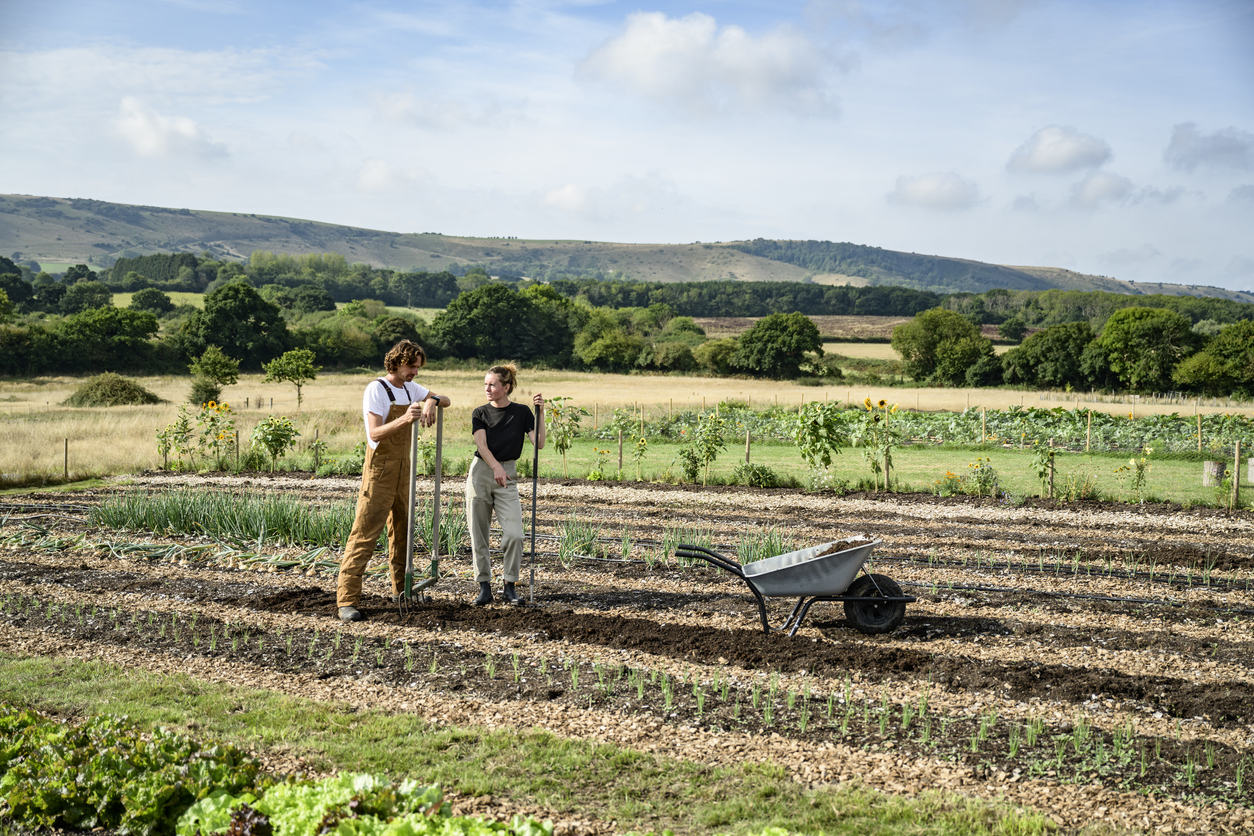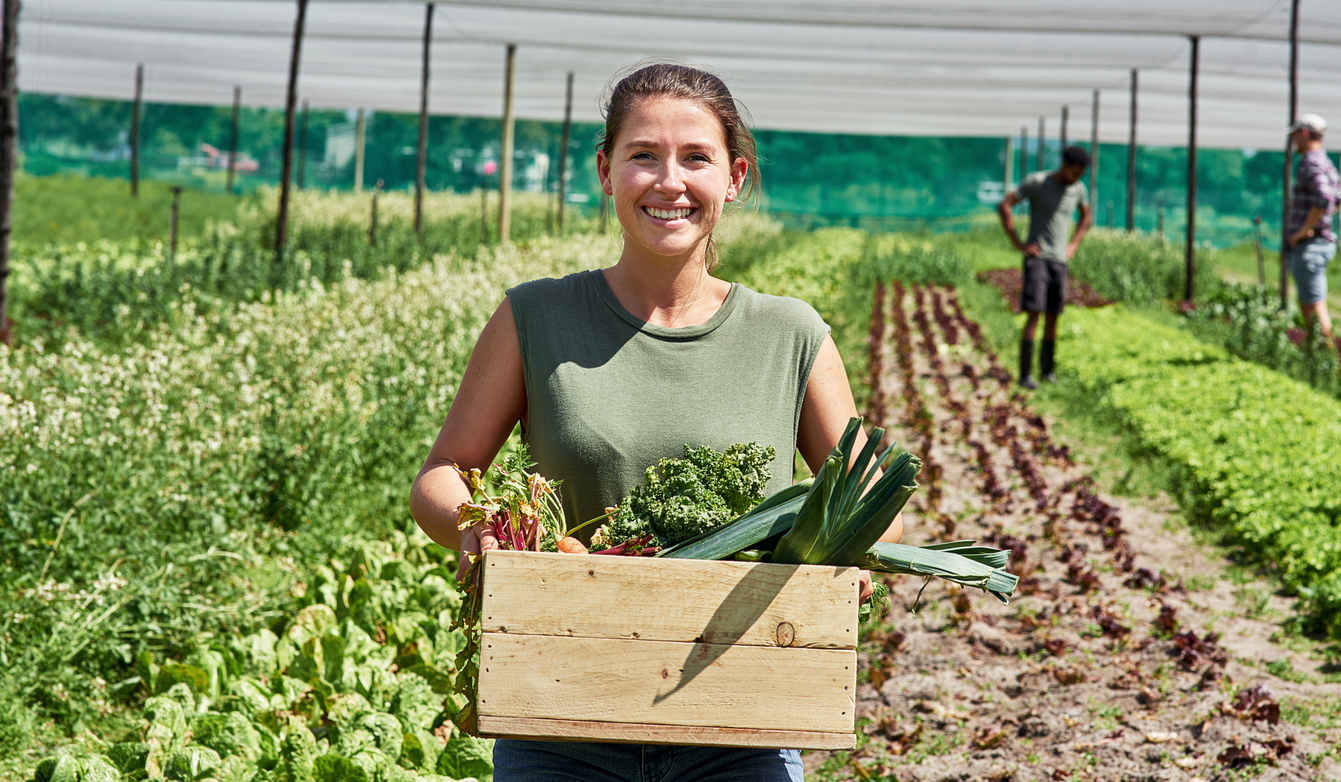We are all guilty of picking up items in our weekly shop without considering the environmental impact of what we are purchasing. We are unwittingly drawn in by big brands and highly processed foods simply because they are convenient.
In recent years, the rise in environmental awareness and desire to lead healthier lifestyles has seen a return to local, seasonal and more conscious eating practices. Essentially, eating locally means choosing food that is grown near to where you live and buying produce from local farms.
For centuries, the Cumbrian countryside has provided ideal conditions for rearing livestock and growing delicious seasonal produce. Today, agriculture in Cumbria is still a thriving industry and the region remains connected to its deep-rooted farming heritage, home to some of the best meat, fish and vegetable producers in the whole of the UK.
With a bountiful natural larder, it is clear to see why so many local farmers, bakers, confectioners and brewers in Cumbria take advantage of their surroundings. There are countless makers, producers and small businesses in Cumbria offering quality locally produced food and drink products that celebrate the region’s unique palates which makes visiting or living in the area a culinary delight.
But what are the benefits of eating local and supporting local businesses? Making the choice to source and eat local produce may not seem like the most convenient option, but here are our top 10 reasons why eating local is worth it in the long run:

Local produce is fresh and it tastes fantastic. Most of the local produce and vegetables in season found at farmers markets have been picked within 24 hours and have not been coated with harsh chemicals to withstand long commutes. Buying local food not only ensures great tasting fresh produce but it also limits the distance the produce must travel to end up on your plate.
As soon as vegetables are picked, their plant cells begin to shrink and the nutrients inside begin to dimmish. By limiting the travel distance that fresh produce must be transported, it will naturally retain more of its’ nutrients, providing foods that are bursting with flavour, colour and goodness.
Choosing to buy your food from local sources reduces your carbon footprint and generates less pollution by limiting the need for fuel-intensive transportation. Buying local and seasonal food also equates to less environmentally damaging waste, particularly plastic packaging and plastic bags. A lot of produce sold at Cumbrian farmers markets are sold in biodegradable packaging, reusable glass containers or without packaging at all, depending on the product.
Spending money in your community and buying local food helps your local economy by supporting farmers, growers and makers in the region. By supporting local businesses you are helping to sustain local producers and increase employment and income into the community among other amazing benefits. The idea of keeping money in your area also helps ensure long-term food security.

One of the best things about eating locally is that you know exactly where your food has come from, allowing you a deeper understanding of your food. In some cases, the fresh produce you purchase from local farm shops may have been grown, reared or created just down the road from where you live. We believe that knowing where your food comes from is better than relying on imported food.
When you shop at local farm shops and farmers markets you typically buy what you need rather than food that will sit in your kitchen, go off and be thrown away. As well as minimising plastic waste, knowing exactly where your food came from, who produced it and how it got to your plate can encourage more mindful eating and limit the amount of food waste you produce.
Another benefit of eating fresh seasonal food is that it is tastier than non-local produce that is out of season. By opting for fresh food in season you will get fresher, sweeter and perfectly ripe produce that tastes better because seasonal food typically don’t use pesticides, waxes and preservatives that are used to preserve foods that are out of season.
If you shop at local farm shops or farmers markets you are likely to be introduced to some new foods that are unique to your area. Buying and eating locally allows you to discover exciting new flavour combinations and sample local delicacies. You may even find a new favourite food or ingredient.

When you purchase local produce or items from small businesses that use locally sourced produce, you are making a positive impact on the environment in your community and helping ensure that valuable resources are protected for future generations. Many Cumbrian farms rely on community support to maintain their operations to continue producing high-quality products.
As well as gaining a better understanding of the food you eat, buying fresh produce straight from the source allows you to make connections with local food suppliers. You are establishing a greater sense of community and gaining a deeper appreciation of the dedicated farmers, bakers, confectioners, producers and makers that work behind the scenes to bring you your favourite quality products.

There are so many amazing benefits of eating local foods. So, next time you’re doing the weekly shop, think twice and support your local food suppliers, savour the flavours of Cumbria and contribute to a more sustainable food system. Whether its buying delicious seasonal vegetables straight from the source or supporting small businesses that use local ingredients, your taste buds and local community will thank you.
Cumbria Chamber of Commerce
3rd Floor
Broadacre House
16-20 Lowther Street
Carlisle
CA3 8DA
0845 226 00 40
©Cumbria Chamber of Commerce 2023 | By: We Are Digital
Join our mailing list and get all the latest news and up dates from Made In Cumbria.